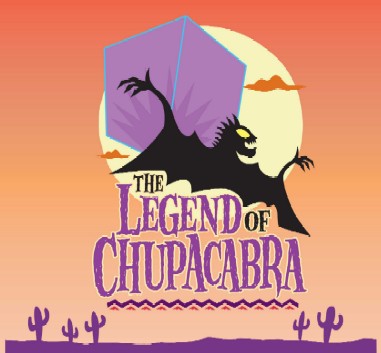
October 25, 2006
This newspaper reporter apparently didn’t read Loren’s post "Chupawhat?".
Chupacabra sighting at Discovery Science Center
To lure kids into learning about real animals, the museum features a mythical one.
By ERIN UY
THE ORANGE COUNTY REGISTER
SANTA ANA Word traveled fast in Salvatierra, Art Guevara’s hometown in Mexico. A chupacabra, a bloodsucking monster, slaughtered a neighbor’s farm animals.
Children who played on the farms and in the fields at night would be next, parents warned. But Guevara, then about 7 years old, and his friends planned to catch the menacing chupacabra with a net.
"It was scary. We stayed out the whole night and when we caught it, we called everyone to see the chupacabra," said Guevara, 56. "And then we realized it actually was a coyote."
The half-man, half-beast monster has never been photographed, but the Discovery Science Center is offering insight into the mythical creature through an exhibit that runs until Nov. 5. The display is part of Discovery’s Spooky Science program, which uses monsters to explore aspects of science.
To understand the chupacabra, children can learn about real creatures that share its traits. The exhibit features leeches and mosquitoes, other bloodsucking organisms. And it looks at specimens such as fleas, which share the hind-leg features that the chupacabra purportedly uses to pounce on its prey.
"What we like to do at the Discovery Science Center is offer something to spark a kid’s interest and then show them the science behind it," said spokeswoman Julie Smith.
But Discovery leaves the mystery of the chupacabra to its guests. There are no images or figures of the creature, which is said to have razor-sharp fangs, scaly skin and haunting red eyes.
Some Orange County residents thought they spotted a chupacabra in Santa Ana in 1996, according to news reports. A construction worker who fell asleep near his apartment window said he woke up to see a large, shadowy figure of the legendary beast.
Guevara said the stories may have been a parental tactic to keep mischievous children like him home at night. But, despite his chupacabra hunts, he has never stopped believing the urban legend.
"They would prefer little kids over grown-ups and animals, they would tell us," he said. "We couldn’t help but be scared."
Half-man, half-beast? I was about to say that the reporter hadn’t read anything about Chupacabras, but apparently that was taken from the museum’s website from their description of "What is a chupacabra?".
A Chupacabra has never been photographed, but reported sightings have provided creatively creepy descriptions: a half-man, half-beast creature that scours the countryside looking for prey, including farm animals such as chickens, rabbits, sheep and goats. It is this last prey that inspired the Chupacabra’s name. The Spanish word “Chupacabra” translates in English as “goat sucker.”
The chupacabra reportedly stands four to five feet tall on two powerful hind legs. It has been known to leap up to 20 feet. It has skin like a reptile that can change colors to blend in with its surroundings. Spikes stretch from its head to the bottom of its back. It has eerie red eyes and long fangs, with a slimy forked tongue that constantly glides in and out of its mouth.
About Craig Woolheater
Co-founder of Cryptomundo in 2005.
I have appeared in or contributed to the following TV programs, documentaries and films:
OLN's Mysterious Encounters: "Caddo Critter", Southern Fried Bigfoot, Travel Channel's Weird Travels: "Bigfoot", History Channel's MonsterQuest: "Swamp Stalker", The Wild Man of the Navidad, Destination America's Monsters and Mysteries in America: Texas Terror - Lake Worth Monster, Animal Planet's Finding Bigfoot: Return to Boggy Creek and Beast of the Bayou.
Filed under Bigfoot Report, Chupacabras, Cryptotourism, Cryptozoology, Eyewitness Accounts, Folklore, Museums, Pop Culture